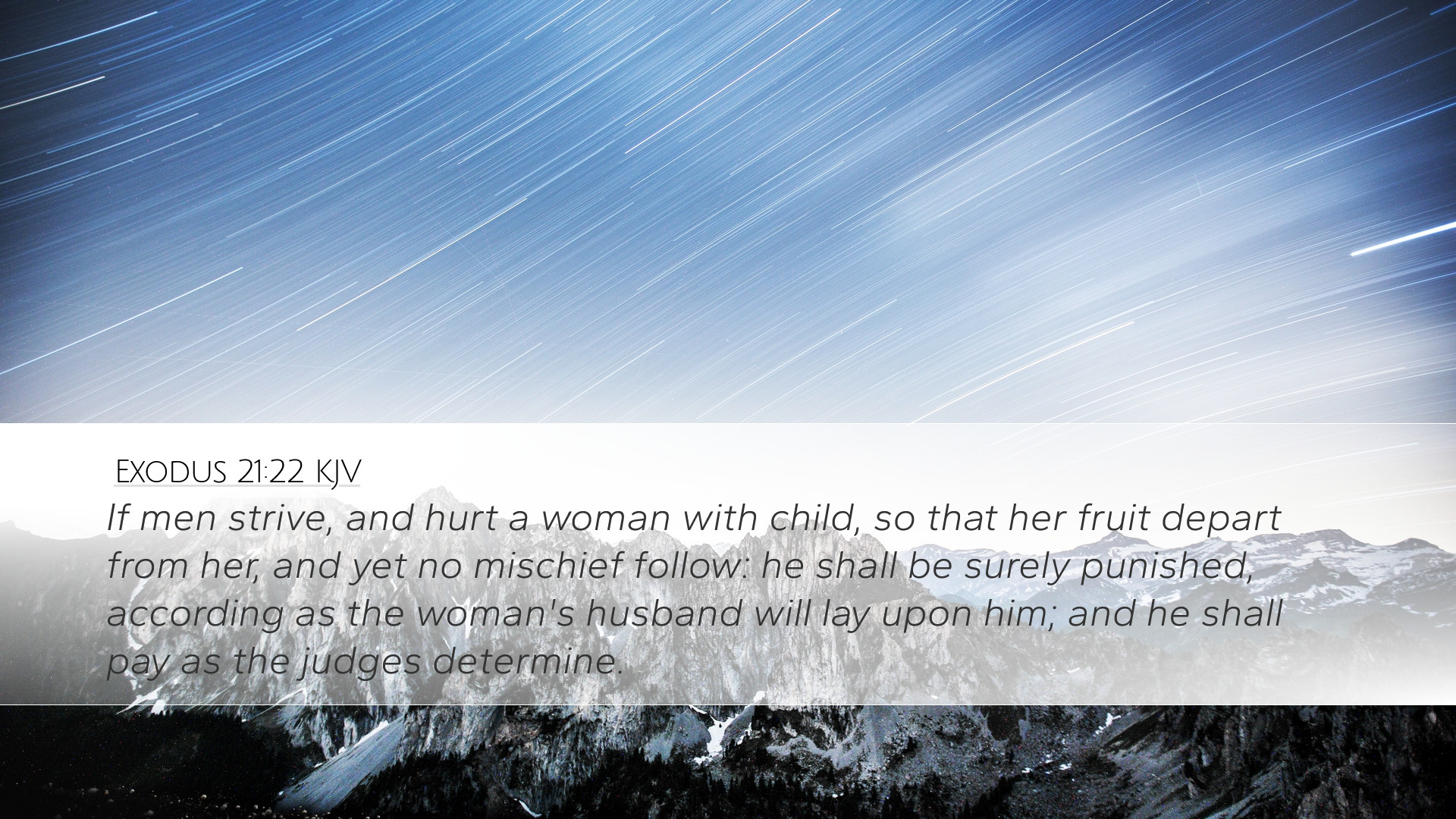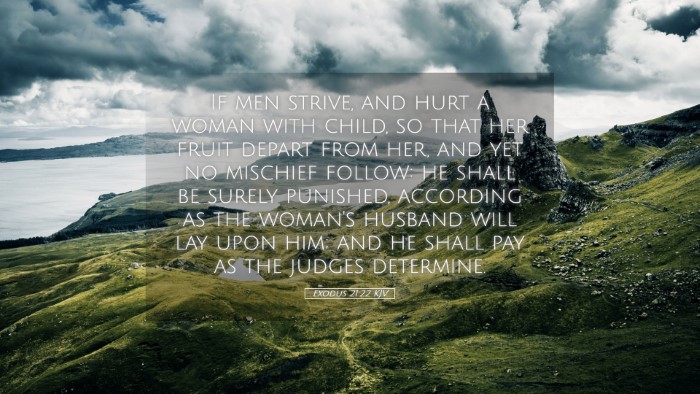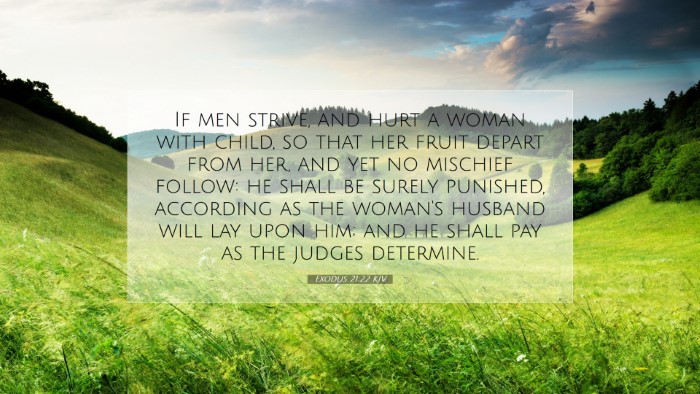Commentary on Exodus 21:22
Exodus 21:22 states: "If men strive, and hurt a woman with child, so that her fruit depart from her, and yet no mischief follow: he shall be surely punished, according as the woman’s husband will lay upon him; and he shall pay as the judges determine."
Introduction
This verse addresses the responsibility and consequences of causing harm to a pregnant woman as a result of a physical altercation between men. The laws given to the Israelites demonstrate God's concern for human life, both born and unborn, and establish principles regarding justice and reparation.
Understanding the Verse
To unpack Exodus 21:22, we will consider the implications of the terms used, the cultural context of the Israelites, and the theological insights provided by earlier commentators.
Key Terms and Concepts
- Strive: Refers to a physical struggle or dispute between men. This suggests an aggressive encounter that inadvertently involves others.
- Fruit depart: Indicates the premature delivery of the child, which suggests potential loss of life or severe injury. The choice of words highlights the fragility of both mother and child.
- Mischief: The term refers to lasting harm or repercussions that would suggest negligence or fatal outcomes.
Cultural Context
The ancient Hebrew society had a strong sense of the sanctity of life. Children and mothers were viewed with utmost importance. The laws governing such incidents reflect an understanding of the societal value placed on family and the consequences of interpersonal conflict.
Theological Insights
Matthew Henry notes that the law emphasizes the distinction between the act of injury and its consequences. The focus remains on dignity and the responsibility of individuals in society. He elaborates that this law serves to protect the vulnerable, highlighting God's justice as foundational.
Albert Barnes remarks on the liability of the aggressor, stating that the personal accountability in such conflicts carries significant ethical implications. The idea of restitution indicates that God's law carved a pathway for justice that necessitated wrongdoers to compensate victims appropriately.
Adam Clarke draws attention to the implications of 'no mischief following.' He presents the understanding that while harm resulted, a distinction is made between different levels of injury and responsibility. The outcome of the conflict (whether it leads to the death of the child or not) plays a critical role in determining the punishment.
Application of the Verse
Throughout history and into contemporary society, this passage weighs heavily on issues of justice, personal responsibility, and the dignity of life. Pastors might reflect on this verse in the context of current discussions surrounding advocacy for the unborn, emphasizing that every life is precious in the eyes of God.
Reflection for Pastors and Theologians
This passage invites leaders within the church to contemplate their roles in upholding justice and mercy, acting as intermediaries for those who cannot advocate for themselves. The assurance of punishment for those who cause harm can be a powerful motivator for ethical behavior within communities.
Considerations for Students and Scholars
For those studying biblical law or ethics, this verse provides a case study of how legal frameworks can reflect deeper moral and theological principles. Understanding the implications of ancient Near Eastern laws can inform contemporary theological applications regarding justice and human life.
Conclusion
Exodus 21:22 serves as a poignant reminder of the inherent value of life and the moral obligation individuals have in their interactions with others. This law not only demands accountability but also reflects the compassionate heart of God, who desires justice tempered with mercy.


